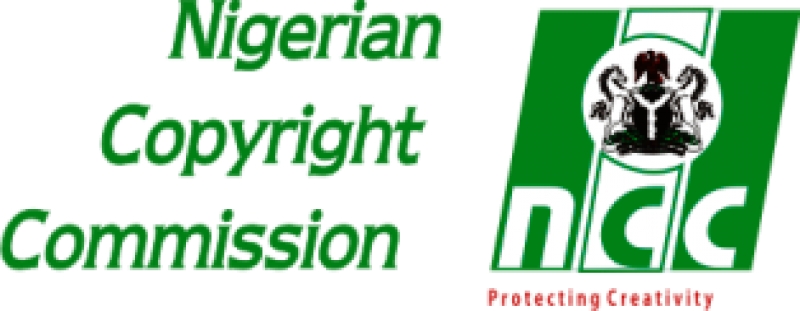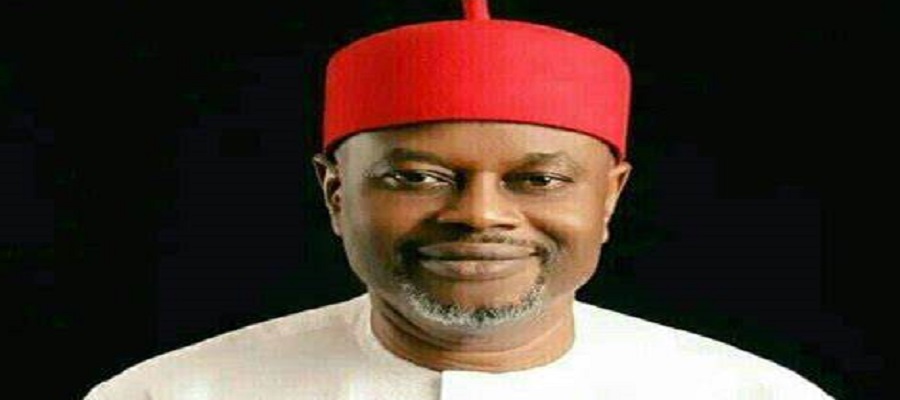Broadcasting
NCC, NTA Partner for Enhanced Copyright Protection in Broadcast Industry

The Nigerian Copyright Commission (NCC) and Nigerian Television Authority (NTA) have reached a commitment to launch an intensive copyright awareness and enforcement campaign to engender a well-regulated broadcast space and rid the broadcast industry of incessant piracy of protected broadcast signal across the country.
The inter-Agency partnership is also geared at facilitating manpower development and institutional capacity strengthening for better service delivery in the interest of both public service organizations.
Mr. John Asein, Director-General of NCC, and the NTA Director-General disclosed these during deliberations when the DG NCC paid a courtesy visit to the NTA Headquarters, Abuja.
Mr. Asein stated that in commemorating the 30th anniversary of NCC in August 2019, the Commission was poised to team up with stakeholders like the NTA to celebrate all copyright owners in appreciation of the contributions of authors and the creative industries to the socio-economic development of Nigeria.
He observed that as the flagship of the broadcast industry and a major content provider, NTA shared a lot in common with the NCC, adding that both organizations would explore avenues of mutual interests to safeguard the wellbeing of the broadcasting environment in the overall national interest.
The DG NCC sought the support of NTA to put creativity on the front burner of national discourse, to inculcate the culture of respect for copyright in Nigerians, especially among students and to send a strong signal out that Nigeria is not a piracy country.
He called for joint NCC, NTA efforts to do an intellectual property (IP) audit of NTA rights and assured that the NCC would intensify its enforcement measures to short down the copyright infringement outlets in unauthorized TV stations, Hotels and airports, among others. “Together, we can clean the space of NTA signals, archival materials and film footages being commercialized without copyright authorization”, he added.
The NCC Director-General underscored the need to include IP/Copyright course in the curricula of NTA College, Jos; offered free IP/Copyright training for NTA staff and pro bono legal services to assist the national TV station to effectively protect the copyright of its broadcast signals and content.
He also called on NTA to facilitate the training of NCC corporate affairs officers and grant concessions for the airing of the Commission’s copyright awareness materials, especially during its forthcoming 30th anniversary.
The Director-General of NTA, Mallam Ibn Muhammed, noted that piracy would reduce with more public enlightenment and assured that NTA would support the NCC in its efforts to educate Nigerians on the values of respect for copyright and creativity and the legal implications of piracy of protected creative works.
He indicated that NTA was the sole owner of Africa Cup of Nations broadcast right and regretted that many TV stations were pirating its signals in addition to the unauthorized production and sales of movies with NTA content materials.
The Director-General stated that the NTA would collaborate with the NCC to secure its assets nationwide and to engender an improved broadcasting environment that is properly regulated by law in Nigeria.
Mallam Ibn Muhammed welcomed the offer of exchange of manpower and institutional capacity development by both Federal Agencies to boost the realization of their respective statutory mandates.
Broadcasting
Subscriber Withdraws Suit against MultiChoice, FCCPC over Price Hike

Festus Sanmi Onifade, subscriber and legal practitioner, has withdrawn his lawsuit challenging alleged unfair price hikes by MultiChoice Nigeria Limited, filed at the Federal High Court in Abuja.

Also listed as a defendant in the suit is the Federal Competition and Consumer Protection Commission (FCCPC).
In a notice of discontinuance, dated April 1, 2025, the claimant formally informed the court of his decision to wholly withdraw the suit, marked FHC/ABJ/CS/363/2025.
However, the notice, signed by Onifade, did not advance reasons for the withdrawal.
Onifade had earlier approached the court to challenge what he described as an unfair and unjust price increase announced by MultiChoice Nigeria, slated to take effect from March 15, 2025.
In the originating summons, he asked the court to determine, among other things, whether, given Section 128 of the Federal Competition and Consumer Protection Act, 2018, and other relevant laws, the notice of the impending price increase issued by the first defendant was not unfair, unjust, grossly inadequate and a breach of his consumer rights; whether, considering the subsisting appeal in MultiChoice Nigeria Ltd & Ors v. Festus Onifade & Ors, the defendant was not stopped from further increasing the price of its services.
The suit centred on legal tussle between Onifade and MultiChoice over price hikes, which the claimant insisted were being implemented in defiance of regulatory standards and without adequate consumer engagement.
Broadcasting
Starlink, DStv, Others Pay “Peanuts” to Operate in Nigeria- Minister

Uche Nnaji, minister of Innovation, Science and Technology, has, said that the federal government has been exploring measures to curb the growing exploitation of satellite technologies, lamenting that Starlink, DStv, and a few other service providers pay ‘peanuts’ to operate in Nigeria.

According to him, some foreign investors have been known to find a way to bypass the system and deprive the government of its mandatory revenues.
The minister made the revelation at a stakeholders’ Workshop on Space Regulation organised by the National Space Research and Development Agency (NASRDA) in Abuja.
Addressing the gathering, Nnaji noted that if the regulation of space is properly handled, it would not only boost revenue, it will also whittle down the growing activities of pipeline vandals, insurgents and criminal groups.
He said, “In the near future, we will move from the $ 1 trillion economy to $ 5 trillion. So with this space regulation and licensing. Starlink and most of them, including DSTV will come here, some will pay peanuts and shortchange Nigerians. These are part of what we want to address through this space regulation and license.
“You can be sure that yearly, if we are going by what my capacity DG of NASRDA has said, we will be looking at over N200 billion annually, with annual increment of 18-20 per cent. This is just one of the initiatives coming out of the agency.”
Continuing, Nnaji said the era of satellite pay-tv or radio losing signal when it is raining will soon be a thing of the past.
The minister said they have discovered some service providers are not operating on the right bandwidths hence the loss of signal when there is a change in weather.
“All these challenges of your TV or radio not working or losing signal whenever it is raining are because the DSTV and the likes are not hosting their equipment at the right bandwidth. They will host it at the lower bandwidth, where they will not spend money on the higher bandwidth.
“But with the regulation, we will force them to move it up to where it’s supposed to be. Because if you move it up to where it’s supposed to be, you won’t have any of those problems of losing signal as soon as it starts raining. So this is part of the many reforms that are going on under this very capable man, Dr. Olumide Adepoju.
Broadcasting
Nigeria Eyes $20Bn Annual Revenue from Space Economy – Minister

Federal government has announced its target of generating over $20bn annually from Nigeria’s rapidly evolving space economy, leveraging a newly launched space security platform and comprehensive regulatory reforms.

Speaking at the launch event in Abuja on Tuesday, Chief Uche Geoffrey Nnaji, minister of Innovation, Science and Technology, unveiled the government’s strategic plans to capitalize on space technologies for national revenue generation, particularly in key sectors like oil monitoring and maritime surveillance.
“With space-based surveillance, we can detect vessels entering Nigerian waters—even those that switch off their transponders to evade detection. We’ll be able to track them, ensure compliance, and collect the appropriate fees. This initiative alone could yield over $20 billion annually,” he said.
The Minister emphasised that Nigeria’s space economy is no longer a futuristic dream but a present-day economic lever.
“Space is no longer the domain of dreamers alone—it is now the frontier of serious business, innovation, and national security,” he declared.
“Our task is clear: to establish a transparent, well-regulated ecosystem where public and private actors—from startups to established institutions—can thrive,” he added.
The new space security platform is tied to the enforcement of Nigeria’s 2015 Regulations on the Licensing and Supervision of Space Activities.
Section 4(1), mandates that no one “shall carry out activities to which the Regulations apply except under the authority of a license granted by the National Space Council.”
These regulations aim to hold local and foreign operators—such as Starlink and DSTV—accountable under Nigerian law.
“Currently, some pay appropriate fees, while others contribute minimally, shortchanging Nigerians. This new regulatory framework will address that imbalance,” Nnaji stated.
Dr. Matthew Adepoju, director general, National Space Research and Development Agency (NASRDA), echoed the Minister’s sentiments, highlighting the economic, security, and youth empowerment potential of the sector.
“Nigeria must remain a forward-thinking nation. We must ensure that space activities within our jurisdiction are properly regulated, commercially optimized, and aligned with international best practices,” Adepoju said.
According to NASRDA, Nigeria can generate about N200bn annually from space-related activities, with potential growth rates of 18–20 per cent per year.
The workshop, which gathered key stakeholders from government, academia, and the private sector, marks a pivotal shift in Nigeria’s approach to space as a tool for development.
It also underscores the urgency to reform existing legal frameworks.
Dr. Olisa Agbakoba, legal expert, who also spoke at the event, criticized Nigeria’s outdated space laws.
“Our current laws are outdated. The NASRDA Act is not a true space law. We need a clear economic strategy for space, legal reform, and an updated National Space Policy,” he said.
Agbakoba proposed creating a Center for Space Law and emphasized that space should contribute at least 2% to Nigeria’s GDP.
“Let’s learn from countries like the UAE. Why not aim for Nigerian astronauts—male and female?” he asked.
Mrs. Esuabana Asanye, permanent secretary of the Ministry, while unveiling the new NASRDA logo, positioned the current phase as a new era in Nigeria’s space journey: “We are now turning the page from the first 25 years, and ushering in a new era—one that will redefine Nigeria’s presence in space.”

 Broadcasting3 days ago
Broadcasting3 days agoStarlink, DStv, Others Pay “Peanuts” to Operate in Nigeria- Minister

 E-Financial3 days ago
E-Financial3 days agoNigeria to Exit Grey List Soon – SEC

 E-Business3 days ago
E-Business3 days agoReliance Infosystems Urges C-Suite Executives to Embrace AI

 E-Business3 days ago
E-Business3 days agoFG to Make Citizen Registration Mandatory under any Circumstance

 News3 days ago
News3 days agoZinox Technologies, TETFUND Collaborate for Tech-Driven Sustainable Future in Tertiary Schools

 General News2 days ago
General News2 days agoAFD Commits €3m to Africa’s Financial Inclusion

 E-Business3 days ago
E-Business3 days agoSecurity Operatives Arrest Suspects behind Illegal NIN Collection in Exchange for Money

 E-Business3 days ago
E-Business3 days agoFG to E-Visa System in May 1 to Boost Border Security, Streamline Travel



























